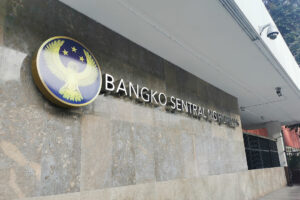THE BANGKO SENTRAL ng Pilipinas (BSP) is expected to delay its policy easing as upside risks to inflation have worsened, but rate hikes are unlikely, HSBC Global Research said.
“The easing cycle may be delayed, but we don’t think there will be any rate hikes ahead with non-monetary policies at work,” HSBC economist for ASEAN (Association of Southeast Asian Nations) Aris D. Dacanay said in a report on Thursday.
HSBC said the central bank is expected to start easing with a 25-basis-point (bp) cut in the fourth quarter, later than its earlier forecast of rate cuts in the third quarter.
It now sees the benchmark rate falling to 6.25% by yearend from 5.75% previously.
“Nonetheless, we continue to expect the BSP to bring its policy rate down to as much as 5% by the end of 2025.”
The Monetary Board has hiked borrowing costs by 450 bps from May 2022 to October 2023, bringing the policy rate to a near 17-year high of 6.5%. The BSP stood pat for a fourth straight meeting in April.
Mr. Dacanay cited recent developments that have added to upside risks to the inflation outlook, such as volatile oil prices.
“Risks to inflation have risen over the past two weeks. Tensions in the Middle East have brought oil prices up, while global rice prices remain elevated,” he said.
HSBC also noted the dollar’s recent strength, coupled with sticky inflation in the United States, may push the US Federal Reserve to keep rates tight for longer.
BSP Governor Eli M. Remolona, Jr. earlier said that expectations of rate cut delays by the Fed have caused weakening in other currencies against the dollar, including the peso.
Fed Chairman Jerome H. Powell has said they might have to keep “restrictive” policy rates for longer amid persistent inflation in the US. Markets are now seeing the Fed cutting rates by September instead of initial expectations of June.
“Market players already expect headline inflation to breach the BSP’s 2-4% target band in the few months ahead due to base effects being unflattering,” HSBC added.
Inflation accelerated for a second straight month to 3.7% in March. This brought the first-quarter inflation average to 3.3%.
April inflation data will be released on May 7.
The BSP expects full-year inflation to settle at 3.8%. The central bank also earlier warned that inflation could overshoot the 2-4% target over the next two quarters amid persistent upside risks.
“To better support the peso and tighten one’s grip on inflation expectations, the BSP will likely stick to its word and begin its easing cycle late this year. And the BSP can easily do this with robust growth,” Mr. Dacanay added.
He also cited other macroeconomic indicators that give the BSP room to delay its easing, such as strong labor market conditions, faster credit growth, stable exports, and improved manufacturing.
“We also downplay the risk of further rate hikes. Although inflation risks have emerged in the form of high oil and rice prices, these risks are supply-side in nature,” HSBC said.
Mr. Dacanay said the most efficient way to mitigate the potential impact is through supply-side interventions.
Mr. Remolona earlier said that current policy settings are “already tight.” The central bank would only consider further tightening if inflation expectations are deanchored. — Luisa Maria Jacinta C. Jocson
